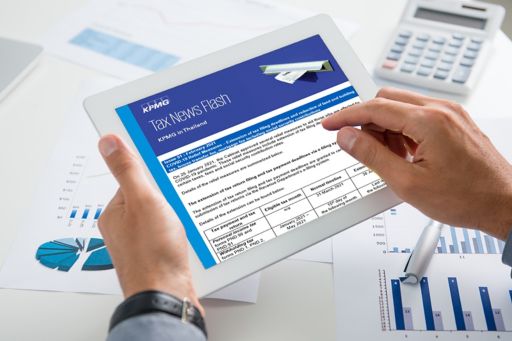Following Thailand’s signing of the Multilateral Convention to Implement Tax Treaty Related Measures to Prevent Base Erosion and Profit Shifting (“MLI”) as detailed in Tax News Flash Issue 122, on 31 March 2022, Thailand deposited its instrument of ratification with the Organisation for Economic Cooperation and Development (“OECD”) for the MLI.
At the point of ratification, Thailand intends for the MLI to apply to 58 of its 61 existing avoidance of double taxation agreements (“DTAs”).
The MLI will enter into force for Thailand on 1 July 2022; however, this date should not be confused with the date of entry into effect for certain taxes and transactions, which has been included below:
- For withholding taxes – if the MLI entered into force for both Thailand and its treaty partner jurisdiction on 1 July 2022, the MLI should apply to withholding taxes on or after 1 January 2023.
- For all other taxes – if the MLI entered into force for both Thailand and its treaty partner jurisdiction on 1 July 2022, the MLI should apply to taxable periods starting on or after 1 January 2023.
The dates of entry into effect applies for DTAs that are covered tax agreements, provided the parties to both DTAs share the same position in respect of the provisions of the MLI.
Application to MNEs
MNEs should carefully consider and analyze how the MLI will affect their cross-border arrangements and transactions, as well as their existing business operations. For example, it is advisable to understand if the current operating, financing, and investment structures are at risk of being considered artificial in nature from a tax perspective. This may be investigated further by looking at whether sufficient organizational and economic substance exists in local jurisdictions to support tax residency status and reliance on access to treaty benefits (e.g., reduction of withholding tax on passive income). Most importantly, MNEs should ensure that the principal purpose of a cross-border arrangement or transaction is not tax driven or for the avoidance of tax. Documentation and substantiation will become more important than ever in the event of a tax audit in local jurisdictions where MNEs have footprints and potential denial of treaty benefits may be anticipated as a result of the MLI entering into force.
How we can help
At KPMG in Thailand, we have international tax specialists with deep knowledge and considerable experience in advising Thai and foreign based MNEs on cross-border arrangements and transactions in multiple jurisdictions, the review and application of DTAs and managing the impacts of the OECD’s Base Erosion and Profit Shifting project. Therefore, we are well placed to support them to manage their tax affairs in consideration for the entry into force of the MLI and to withstand potential challenge from local tax authorities.
KPMG in Thailand are hosting a webinar on the implications of the entry into force of the MLI and how companies will be affected.
For any queries in relation to the MLI or for information in relation to the webinar, please contact the following people or reach out to your usual contact at KPMG in Thailand.
Key contacts
Connect with us
- Find office locations kpmg.findOfficeLocations
- kpmg.emailUs
- Social media @ KPMG kpmg.socialMedia



